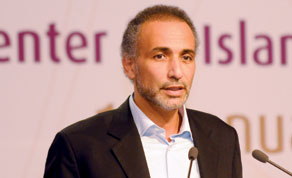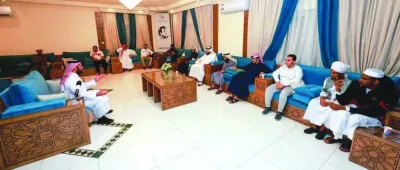 |
| Dr Ramadan speaking at the launch of CILE |
The interpretation of religious texts has to be updated with time, said Dr Tariq Ramadan, director of the Research Centre for Islamic Legislation and Ethics (CILE), a Qatar Foundation initiative, at its launch last week.
“Reform has to bring together the scholars of religious texts and legislations alongside the ‘scholars of reality’ who comprise clergy, scientists, economists, physicians and those from the other disciplines that directly involve human life,” he added.
The CILE director felt that what is really needed to address the issues of modern world is transformational reform, which involves reforming the real on-ground situation in the light of Islamic principles and the targets of the law. “We want the dignity of man, justice, freedom and the education of freedom, and spreading peace among people,” said Dr Ramadan.
CILE deputy director Dr Jasser Auda discussed how the Islamic legislation can be a solution and part of the solution, not part of the predicament, especially with current multiple basically ethical dilemmas in the modern world.
He said that traditional religious jurisprudence is often formal and falls short when dealing with reality. “Studies in Islamic ethics have been mostly abstract and the practical part in them used to be weak.”
However, Dr Auda pointed out that the key message of CILE is to conduct modern ethical studies that target flexibility, tolerance and achieving the interests of people.
“The genuine Islamic jurisprudence is linked to ethics and targets the main interests of humanity,” said Sheikh Dr Yusuf al-Qaradawi, president of the International Union of Muslim Scholars.
He said that ethics are an integral part of religious thinking. “Religion is originally an ethical message targeting the implementation of justice and equality among people in the land of God,” he added.


